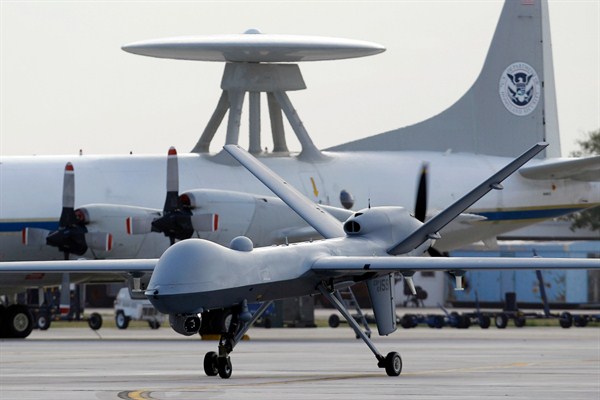In the war against terrorism, U.S. diplomacy, defense and intelligence all work together, in what can be an impressive integration of capabilities across the national security enterprise. But balance is key, and recent reports that the CIA wants to expand its combat role, with greater authority to conduct drone strikes, raise questions about who should lead the fight against terrorism and how to navigate among competing players and institutions.
To date, the war against the self-proclaimed Islamic State has provided ample evidence of how the big national security machine can work across its various disciplines and agencies. Sure, there are bureaucratic spats and tactical disagreements, but overall, it’s not a bad example of integration.
When the Obama administration decided to ratchet up its efforts against the Islamic State in 2014 and create yet another international coalition to combat threats from the Middle East, it turned to Gen. John Allen. He was the retired commander of NATO forces in Afghanistan and later led a U.S. security initiative with Israel and the Palestinian Authority, so he was no stranger to the difficulties of working in the region. He was succeeded by Bret McGurk, his civilian deputy, who has remained in place during the Trump administration. Allen and McGurk’s combined skills are proof that sometimes military officers can serve effectively in a diplomatic role, and that civilians can be credible leaders of a complex political-military endeavor.

